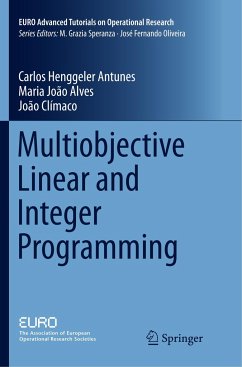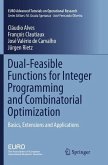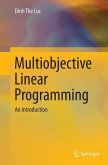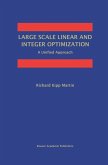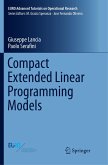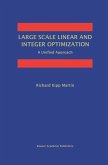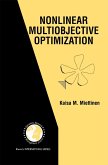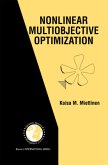This book opens the door to multiobjective optimization for students in fields such as engineering, management, economics and applied mathematics. It offers a comprehensive introduction to multiobjective optimization, with a primary emphasis on multiobjective linear programming and multiobjective integer/mixed integer programming. A didactic book, it is mainly intended for undergraduate and graduate students, but can also be useful for researchers and practitioners. Further, it is accompanied by an interactive software package - developed by the authors for Windows platforms - which can be used for teaching and decision-making support purposes in multiobjective linear programming problems. Thus, besides the textbook's coverage of the essential concepts, theory and methods, complemented with illustrative examples and exercises, the computational tool enables students to experiment and enhance their technical skills, as well as to capture the essential characteristics of real-worldproblems.
"This tutorial on multiobjective programming is based on the vast teaching and research experience of the authors. ... Readers do not require an advanced mathematics background to grasp the whole content of the book. It is clearly written, accompanied with exercises at the end of each chapter, making it a great contribution to acquiring knowledge in the field of multiobjective optimization." (Hans W. Ittmann, IFORS News, Vol.11 (2), 2017)
"A peculiar feature of this book is the authors' intention to explain concepts and methods of multiobjective linear programming through examples in low dimensional spaces without any theorems or proofs. This enables the readers grasp the whole content of the book without advanced mathematics background. The book is clearly written, accompanied with exercises for training at the end of each chapter. It is a nice contribution to the field of multiobjective optimization." (Dinh The Luc, zbMATH 1358.90123, 2017)
"The authors present a textbook in multiobjective programming, based on their vast teaching and research experience. They focus in particular on linear and integer multiobjective programming problems. ... The authors provide many illustrative examples, as well as exercise (many of them with solution). This makes the book very useful for undergraduate and graduate students in all the areas where multiobjective programming appears, e.g. students in engineering or economics." (Marcin Anholcer, Mathematical Reviews, October, 2016)
"A peculiar feature of this book is the authors' intention to explain concepts and methods of multiobjective linear programming through examples in low dimensional spaces without any theorems or proofs. This enables the readers grasp the whole content of the book without advanced mathematics background. The book is clearly written, accompanied with exercises for training at the end of each chapter. It is a nice contribution to the field of multiobjective optimization." (Dinh The Luc, zbMATH 1358.90123, 2017)
"The authors present a textbook in multiobjective programming, based on their vast teaching and research experience. They focus in particular on linear and integer multiobjective programming problems. ... The authors provide many illustrative examples, as well as exercise (many of them with solution). This makes the book very useful for undergraduate and graduate students in all the areas where multiobjective programming appears, e.g. students in engineering or economics." (Marcin Anholcer, Mathematical Reviews, October, 2016)

